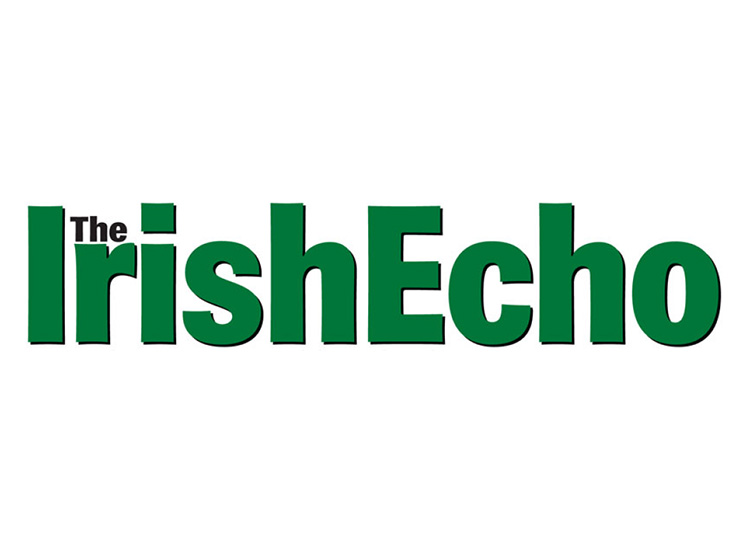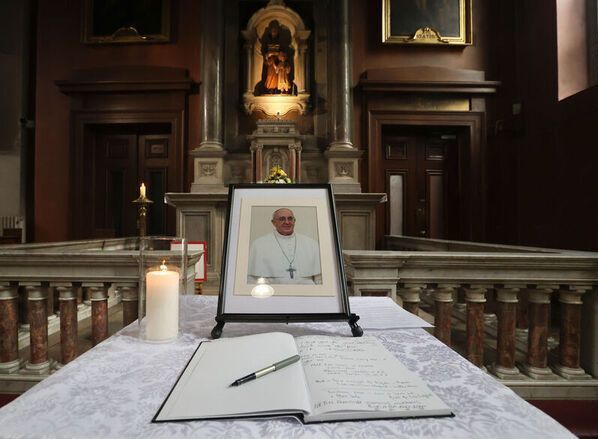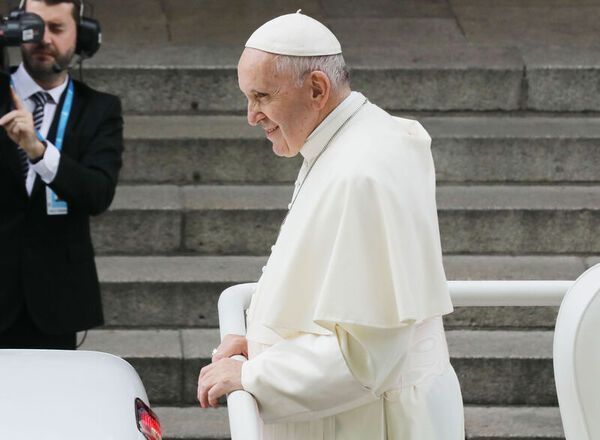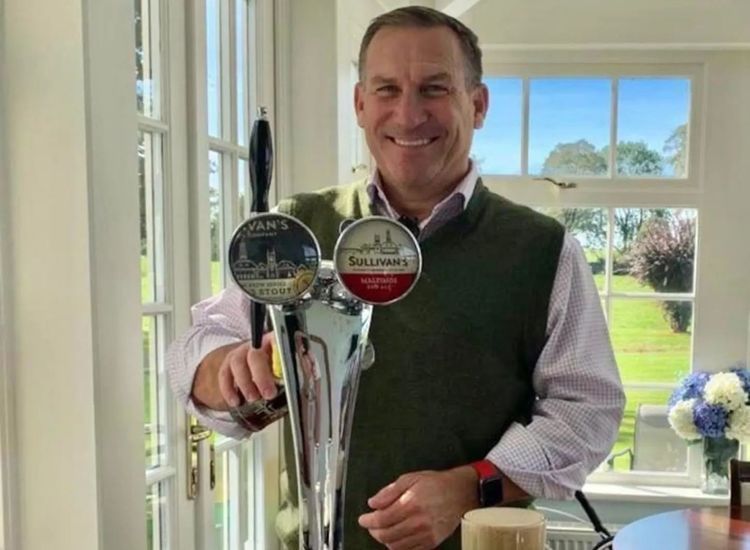From left, actors Rachel Weisz, Gabriel Byrne and Lisa Dwan pictured at PoetryFest with the Irish Arts Center’s Rachael Gilkey and festival curator Nick Laird. PHOTO BY IAIN TOFT
By Orla O’Sullivan
Almost a year to the day of last year’s highly divisive presidential election, PoetryFest, the Irish Arts Center’s annual event, struck a more political note than usual.
Nick Laird, the Northern Irish novelist, poet and lawyer who curated the sold-out event, opened it Friday night by observing that poetry is sorely needed in these times. Poetry forces us to experience the world as someone else does, he said. By contrast, he added, “Populism claims to love the people but hates the individual.”
Most of those who read Favorite Poems in the traditional opening-night event followed by a party, did not invoke politics. Rather, they covered everything from a fly-fishing holiday in County Leitrim that Raymond Carver commemorated with a poem, to a flirty song collected by the sisters of W.B. Yeats and recently discovered in the archives of UCD by Dubliner Tara Bergin, one of several participants visiting from overseas.
The first to read was Belinda McKeon, the Irish Times journalist turned novelist who is now based in Brooklyn.
PoetryFest was the brainchild of McKeon and her husband, Aengus Woods, also a writer from Ireland. They curated the weekend-long free festival from its inception nine years until Laird took over last year.
This year, McKeon was celebrating the birth six weeks ago of her first child. That event influenced her choice of material, she said, after initially joking that the audience was about to be presented with “600 photos” of her daughter, “the only child in the world.”
In discussing ”this little alien without language,” McKeon returned to the idea in Laird’s introduction of how central words are in allowing us to share in a common experience. She said she has been contemplating how lonely the newborn’s introduction to the outside world must be and posited that part of the reason parents want their child to develop language is “so that they seem less strange.”
McKeon read a poem Sinéad Morrissey, a professor visiting from Newcastle University, wrote about her newborn, “Augustine Sleeping Before He Can Talk.”
One line capturing the strange new world runs, “When he opens his mouth to admit the spoon, anything can happen, from passion fruit to Parmesan.”
“The Zoo of The New,” is the name of a poetry anthology co-curated by the festival’s Laird that was published in the UK in spring, from which a couple of readers selected poems. (The 482-page volume is expected to be published in shorter form here next year.)
As in past years, Belfast-born Louis MacNeice was festival readers’ top pick and, again, a couple unknowingly selected the same poem to read: “Snow,” which some Echo readers raised in Ireland may remember from their Inter Cert.
Yeats came next, though Heaney was notably absent, while Austin Clarke and Patrick Kavanagh featured, as in years past.
“What is an Irish poem?” asked Alice Lyons, a poet from Paterson, N.J., now living in Ireland. “This … for hyphenated people like myself, well it’s bigly,” Lyons said, making her own wry political reference.
It was she who fished out the surprising Irish poem by Carver, one of America’s best known short-story writers.
Writer Roger Rosenblatt who read Kavanagh said he first consulted former US Poet Laureate Billy Collins about keeping a comma. (The current Laureate Tracy K. Smith is a past PoetryFest participant.)
Collins was expected for opening night as was novelist (and Laird’s wife) Zadie Smith. Scheduling conflicts prevented them from attending. Gabriel Byrne was in the audience, but declined to read.
Novelist Colum McCann read work by Gerard Fleming, a Dublin poet he said has been underappreciated. He died last month.
“Death takes many things but it cannot take our words,” McCann said in his tribute to Fanning, who was the brother of broadcaster Dave Fanning and Blackrock College classmate of Bob Geldolf









